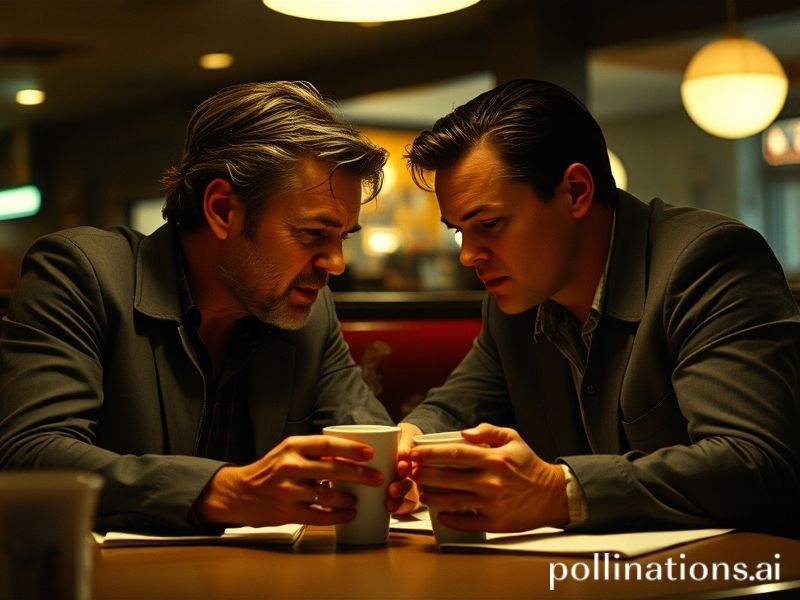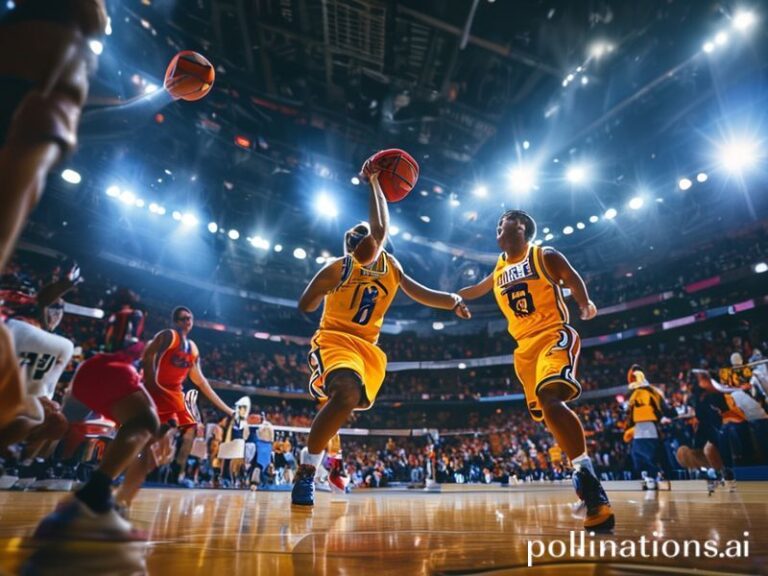Global Cinema Trembles: The Anderson-DiCaprio Collaboration That Could Unite a Fractured World (Or at Least Give Us Something to Talk About)
**When Titans Tango: The Global Implications of Anderson-DiCaprio’s Hypothetical Ballet**
The international film community found itself in collective cardiac arrest this week when whispers emerged that cinema’s most meticulous auteur, Paul Thomas Anderson, might deign to collaborate with Hollywood’s last true movie star, Leonardo DiCaprio. The news spread faster than a cryptocurrency crash, sending film festivals from Cannes to Busan into paroxysms of anticipation that would make a Bitcoin maximalist blush.
For those keeping score in the global prestige Olympics, this potential pairing represents nothing less than the cinematic equivalent of discovering oil in your backyard—if your backyard happened to be the cultural consciousness of humanity itself. Anderson, the San Fernando Valley’s answer to Proust (assuming Proust had access to better catering and tracking shots), has spent decades crafting films that make audiences feel simultaneously brilliant and hopelessly inadequate. DiCaprio, meanwhile, has evolved from teenage heartthrob to our generation’s go-to vessel for American masculine angst, a transformation as inevitable as climate change but considerably more profitable.
The international implications are staggering. European cinephiles, who’ve spent years perfecting their dismissive shrugs at American cinema, now face the prospect of admitting that yes, perhaps those California boys can occasionally produce something that doesn’t require superheroes or exploding vehicles. Asian markets, which have elevated DiCaprio to near-mythical status, are already calculating the box office potential with the cold precision of a Swiss banker. Meanwhile, developing nations wonder if they’ll even get the film before the inevitable streaming service algorithm decides they’re culturally prepared for Anderson’s particular brand of existential dread.
What makes this pairing particularly delicious is the cosmic irony at play. Here we have Anderson, a director who treats plot like a suggestions box at a totalitarian regime, potentially working with DiCaprio, an actor whose career has been defined by films where plot is essentially a delivery mechanism for his face. It’s like watching a haiku master collaborate with a billboard artist—the result will either be transcendent or make us question everything we thought we knew about art, commerce, and whether pineapple belongs on pizza.
The global film economy trembles at the possibilities. Streaming services from Mumbai to Madrid are already preparing their checkbooks, knowing that Anderson-DiCaprio represents the kind of prestige content that justifies their monthly subscription fees to discerning audiences who pretend to understand what the hell was happening in “Inherent Vice.” Film critics worldwide are updating their thesauruses, searching for new ways to describe DiCaprio’s furrowed brow under Anderson’s meticulous direction.
But perhaps most significantly, this collaboration signals something deeper about our current cultural moment. In an era where artificial intelligence can write screenplays and deepfakes can put anyone in any movie, the prospect of two actual humans creating something genuinely new feels almost revolutionary—like using a rotary phone or reading a physical newspaper. The world hunger crisis won’t be solved, climate change won’t reverse itself, and that weird rash still won’t go away, but dammit, we’ll have a new film that makes us feel something approximating human emotion.
As nations debate trade wars, pandemic responses, and whether democracy is just a passing fad, the Anderson-DiCaprio collaboration reminds us that some things transcend borders: our collective need for stories that make us feel less alone in our confusion, our appreciation for craft in an age of content, and our willingness to pay fifteen dollars to watch beautiful people suffer artistically.
The film may never materialize—Hollywood rumors have the lifespan of a fruit fly with depression—but the very possibility has already achieved something remarkable: uniting a fractured world in anticipation of something that might not exist, proving that hope springs eternal, even when filtered through the sardonic lens of international cinema.







